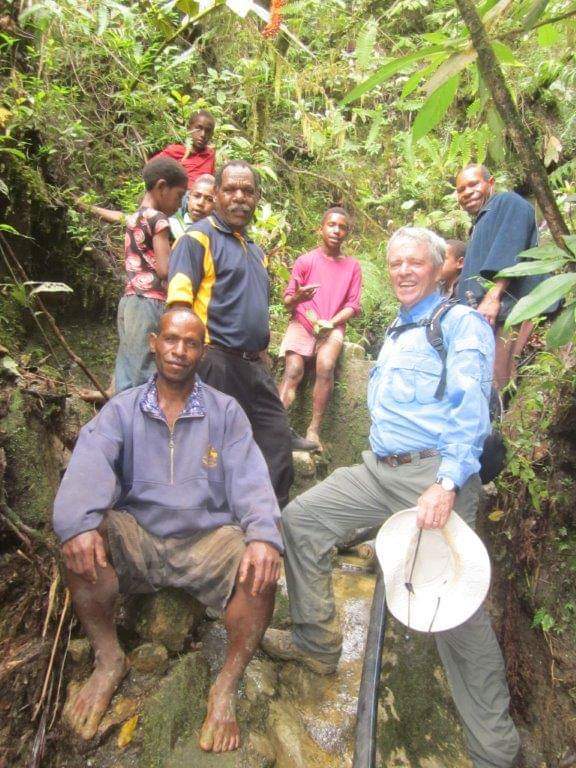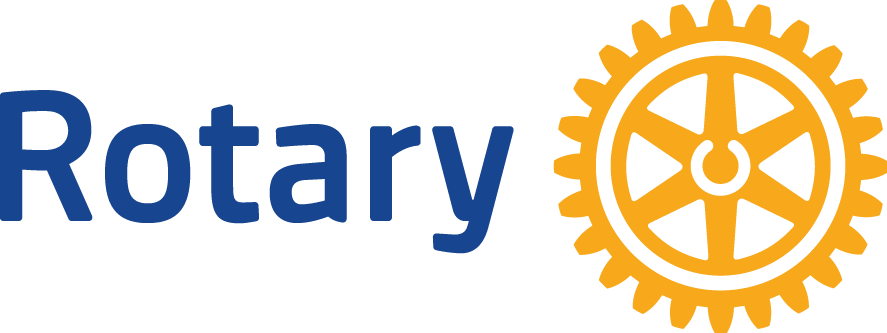The Supurunda Water Supply Project in PNG has been a benchmark project for Rotary.
In 2018 eight villages covering five culturally diverse groups agreed to put aside past enmities to ensure they could enjoy the mutual benefits of a safe, clean water supply. The resultant water system is now a common and enduring thread that, no matter what else happens, will unite them and will be protected by them for everyone to enjoy into the future.

The project area is located 30 km north-west of Goroka in Daulo District, which is part of the Eastern Highlands Province. With a total cost of US$62,969, the project was funded by a global grant of $24,011, along with funds from a number of districts and clubs in Australia and PNG. The Rotary club of Goroka was responsible for the management of the project and then club secretary Osivo Ombuano was the project manager. Ian Cameron from the Rotary Club of Mitchelton QLD, and Wes Nichols from the Rotary Club of Toowong QLD, provided mentoring for the project delivery team as project directors.
The water system supplies clean water to 3000 villagers in eight villages for the first time ever. It is spring-fed and delivered via a gravity-feed system that has minimal moving parts, making ongoing maintenance easy and cost-effective. Construction materials were purchased locally in PNG and construction was completed by the villagers within a six-week timeframe. Over 7 kilometres of poly pipe were trenched as part of the project, poly tanks were installed for water storage in the system and 52 communal taps provide free-flowing water to clusters of houses, school buildings, churches and health clinics.
The spring source has a confirmed flow of 2.25 litres per second and can supply up to 65 litres per person per day for the population of 3000. Water from the Asaro and Gota Rivers, while not fit to drink, augments the water supply to irrigate crops, helping drive the community towards economic development. A Memorandum of Understanding (MOU) was developed between the five tribal groups and the owner of the water supply source to share the water between the villages before the project begun. This MOU was used as the basis for developing a policy document which is registered with the local court, and is enforceable by law.
A Water and Sanitation and Hygiene (WASH) education program was rolled out prior to construction, with sessions for the villagers and school children. A briefing was held for the Supurunda Water Supply Committee and this helped ensure the program was rolled out effectively to the entire population. The WASH program will be run each year for school children.
Osivo and his skilled team of plumbers, carpenters, concreters, pipe layers and other water supply installers, trained the local workforce in the installation and maintenance of the water supply system. Everyone (men, women and children) was involved in the construction phase, giving them ownership of the project to ensure the system is protected and preserved. Around 2000 people came to celebrate the completion of the project in a ground-breaking opening ceremony, where all eight villages were represented in their respective traditional dress. Supurunda Water Supply Committee Chair, Pastor Kombai, said the ceremony was the biggest celebration they’d held since independence in 1975. Thirteen pigs (an unusually large number) provided by each of the villages were cooked in a mu-mu (pig and vegetables roasted in a ground oven) and along with other food, divided and presented to various parties in honour of their contribution to the project. As a comparison only one pig was shared at the most recent celebration prior to this. Pigs play an important role in Papa New Guinean culture, where they represent social values and are a symbol of status.
“When asked why so many pigs were offered up, we found out that as well as for the celebration, the pigs were being used to settle past grievances,” Wes said. “Peace and conflict resolution were happening right there in front of us and all as a by-product of supplying safe, clean water. This was an extremely serious and important part of the celebration”. The Supurunda Water Supply Committee will oversee the operation and maintenance of the water supply scheme, while a monthly levy on households will raise funds for its maintenance. “They are a very professional team and have everything in place to ensure the sustainability of the project” Wes said.
Since the initial project was completed, the water supply system has been extended to the nearby village of Osomea. A 5000-litre tank from an unsuccessful European Union project was relocated to Osomea to be used as a distribution tank for the village. The Supurunda Water Supply Committee continues to meet, the WASH program training is still in force, and the health benefits are being realised. “This has been a spectacularly successful project," Wes said. It is providing water to communities who never imagined they would ever see clean, running water in their villages in their lifetime”.
